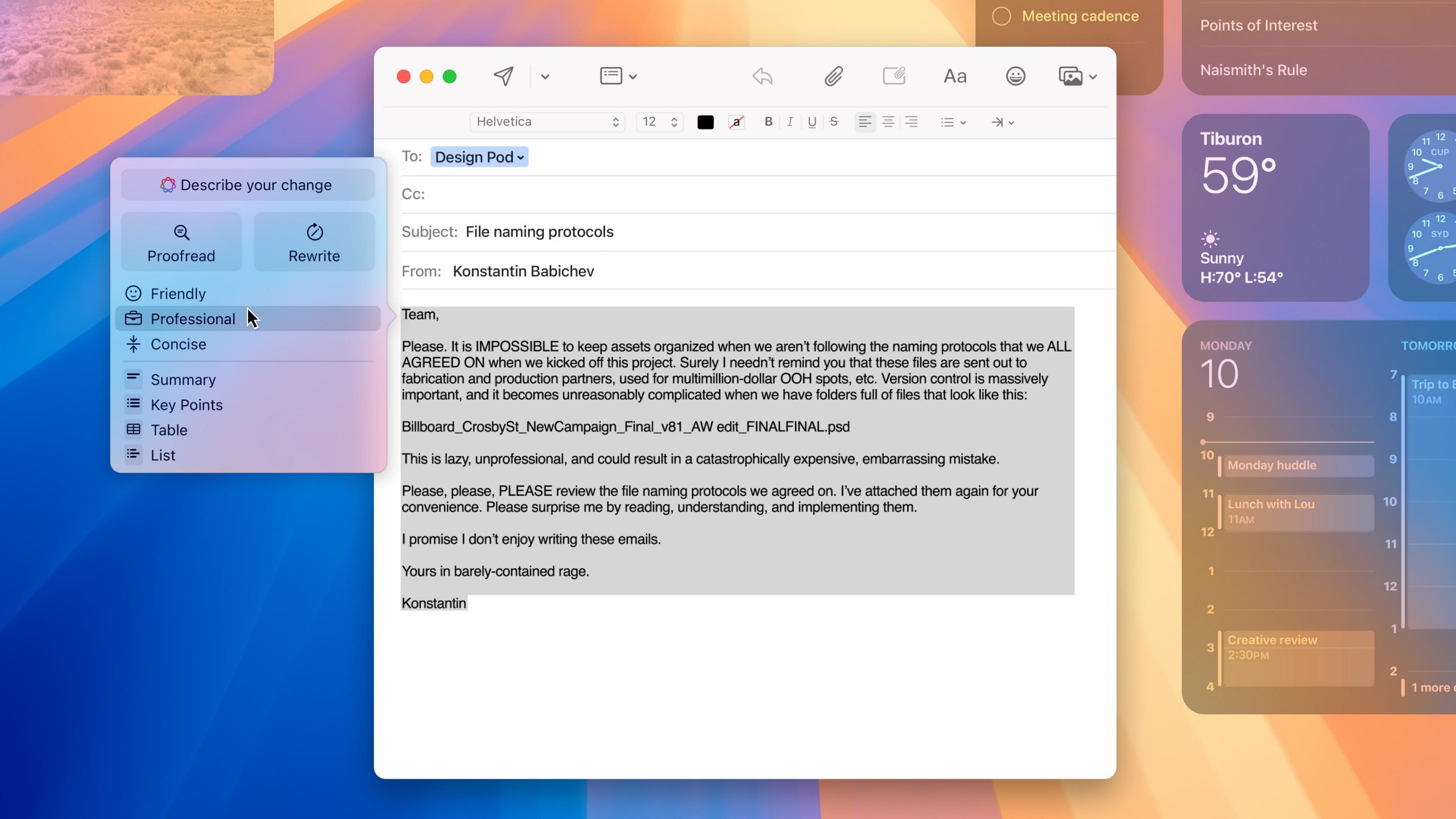Apple Brings ChatGPT To iPhones, Macs In AI Push

Apple launches ‘Apple Intelligence’ AI strategy across devices, including tie-up with OpenAI’s ChatGPT amidst heavy competition
Apple is to bring OpenAI’s ChatGPT chatbot to devices including iPads, iPhones, Vision Pro headsets and Macs later this year as part of a push into artificial intelligence (AI) that is the headline of its World Wide Developer Conference (WWDC) that started on Monday.
Opening the event at Steve Jobs Theatre at Apple Park, the company’s headquarters in California, Apple said it would integrate what it termed Apple Intelligence across its apps and devices, for instance enabling its Siri digital assistant, to control apps, rewrite emails and summarise notifications.
Some of the features Apple announced trail those of competitors, having similarities, for example, to AI features already found in Gmail.
The announcements are also similar conceptually to Microsoft’s recently announced Copilot+ PCs, which also build AI features into common actions in Windows.

AI strategy
Apple’s stock price declined more than 2 percent during the day’s trading as investors took stock of the news.
The company’s actions with AI are being closely watched as it is seen to be trailing competitors such as Google and OpenAI backer Microsoft in the AI gold rush.
Microsoft in January surpassed Apple as the most valuable US listed company, largely on optimism over its AI investments.
On Monday a roughly 1 percent rise in Nvidia’s stock price, along with the Apple decline, saw the graphics chip maker rise over Apple’s value for the second time this month with a market capitalisation of roughly $3 trillion (£2.36bn) to Apple’s $2.95tn, becoming the second most valuable company after Microsoft, in a further demonstration of the hold AI has taken on investors’ imaginations.
Along with its wide-ranging AI features, Apple said it would institute strong privacy controls, with many of the actions taking place on-device for computers with its A17 Pro or M-series chips.

Privacy
For actions that require server capabilities the processing is to be done on Apple Silicon-based servers in what it called Private Cloud Compute systems where the data will not be shared with third-parties or with Apple itself.
For capabilities Apple’s own systems can’t handle, the task will be sent to ChatGPT, although the user will be asked for permission first.
Apple said other chatbots would be supported later.
Entrepreneur Elon Musk said he would ban Apple devices from his companies, which include Tesla, social media platform X (formerly Twitter) and SpaceX, if ChatGPT is integrated into Apple’s devices at the OS level.
“That is an unacceptable security violation,” he said in a post on X. “And visitors will have to check their Apple devices at the door, where they will be stored in a Faraday cage.” A Faraday cage blocks wireless signals, ensuring privacy.
‘Deeply integrated’
“It has to be deeply integrated into your product experiences,” said chief executive Tim Cook in a prerecorded message at the event.
“Most importantly, it has to understand you and be grounded in your personal context, like your routine, your relationships, your communications and more and of course, it has to be built with privacy from the ground up. Together. All of this goes beyond artificial intelligence. it’s personal intelligence. and it’s the next big step for Apple.”
The new features will draw on all the personal information users have already entered into apps such as Calendar and Contacts, executives said.
Users will be able to use AI to summarise the contents of an email they have written, to rewrite the message in a different tone, such as “professional” or “friendly”, or to compose a “Smart Reply”, a feature already offered in Gmail.
Image generation
Image-generation features will be used to generate emojis from text prompts or in Image Generator, an on-device tool built into apps such as Messages, Keynote, Pages and Freeform.
Access to Image Generator will be opened up to third-party apps via an API.
Users will be able to speak to Siri more naturally and will now have the option of typing queries.
Apple said Siri would be able to take on such tasks as finding a photo of the user’s driver’s licence on their system, pulling out the licence number and inserting it into a web form when asked to do so.
Apple also said its Vision Pro headset would be available in eight more countries later this year, including China and Japan, with pre-orders available in the UK on 28 June.